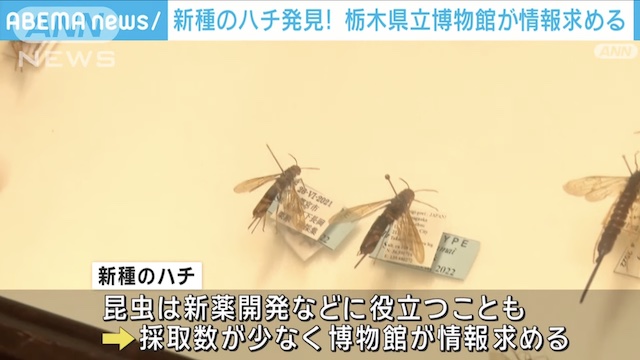Tochigi, May 11 (News On Japan) - A potentially new bee species has been identified by staff at the Tochigi Prefectural Museum, sparking a call for more specimens on social media after initially collecting only six.

Takashi Kurihara, lead researcher at the Tochigi Prefectural Museum, expressed regret over not collecting more samples. "Everyone was surprised, it felt unreal. We thought collecting about six would suffice, but had we known it was a new species, we would have definitely collected more," he said.
The bee, identified in 2021, is a type of stingless bee that does not harm humans. Typically observed in the autumn, its discovery in spring prompted further investigations, which led to its classification as a new species.
Understanding the biology of insects can contribute to developments such as new medicines. However, with only six specimens collected, the museum turned to social media to solicit further information.
According to the museum, numerous valuable contributions, including images of the bee, have already been received.
Due to the limited number of specimens, they must be carefully preserved, and they will be on display only until June 30.
This July, the bee is set to be officially named "Shimotsukehiraashikibachi."
Source: ANN















